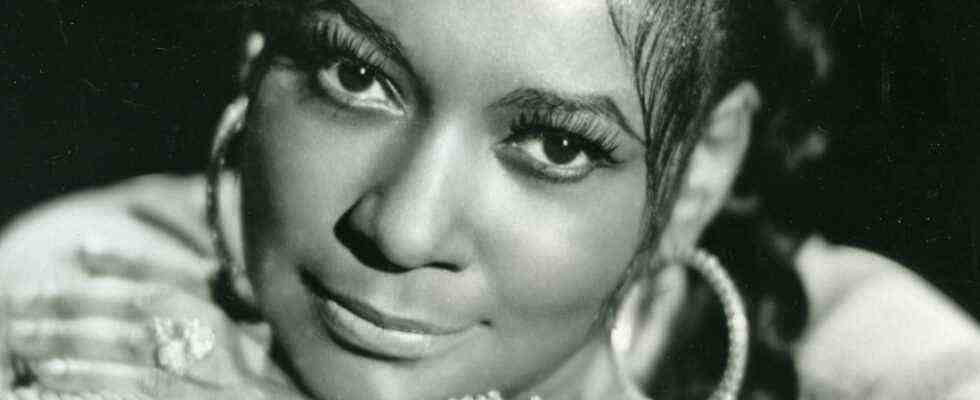The great, really wonderful stair joke of the hip-hop genre can be found on page eleven. Second sentence to the first record: “Das von Sylvia Robinson (the ‘Mother of Hip-Hop’) produced and released an album on Sugar Hill Records in 1980 Sugar Hill Gang of the group of the same name catapulted hip-hop music into international pop culture before there was even any talk of an independent hip-hop movement. “So much for the male genre.
Robinson was a singer herself, serving as one half of Mickey & Sylvia (“Love Is Strange”, 1957) and solo (“Pillow Talk”, 1973) has released two number one albums. In 1979 she founded Sugar Hill Records with other Sugar Hill Records. First release: “Rapper’s Delight”, the hit single from the album mentioned – a more disco-euphoric glitter work, apart from the single not yet completely artistically significant, but with this line that said everything for the moment: ” Now what you hear is not a test, I’m rappin ‘to the beat “. In 1982 the label released “The Message” by Grandmaster Flash & The Furious Five. The first sentences of the first stanza: “Broken glass everywhere / People pissing on the stage, you know they just don’t care / I can’t take the smell, can’t take the noise / Got no money to move out, I guess I got no choice. “
Party-hopping and reports of smelly streets, littered with broken glass and a lack of perspective – the rap actually contained a surprisingly early an astonishing amount of what it still emphasizes as its great achievements today. Because he also exhibits a partially very persistent hatred of women to this day, again to take notes: Without Robinson, who died in 2011, there would be no “rappin ‘to the beat” and no “broken glass”. So no rap without a woman.
It is one of the very good moments in Dustin Breitenwischers recently published book “The History of Hip-Hop – 111 Albums” (Reclam Verlag, 280 pages,), how nonchalantly he incorporates the woman factor as background information. How the background information, cross-references and very knowledgeable sociological classifications represent the more profitable part in this small collection, which actually aims to be a kind of chronological canon of hip-hop albums from the eighties to today. And also is. With the limitations that the author himself emphasizes in a kind of short methodology (“About the selection”): With the 111 albums he focuses on the USA (country of origin of the culture), the German-speaking region (reader’s home) and otherwise more marginally on Great Britain and France (after that, among other things, the language barrier is too high).
Breitenwischer reflects these restrictions well, he is in his main job Junior professor for American studies at the University of Hamburg – and thus possibly a little stronger as a sociologist and historian than as a record critic. Maybe that’s why he emphasizes on “Planet Rock – The Album”, the genre-defining early synth rap masterpiece by Afrika Bambaataa & The Soulsonic Force, especially the abuse allegations that have been made against the hip-hop pioneer for a number of years. And therefore forego “at this point a worthy review” of the album. You can probably do that, if you did it consistently, the canon would, however, grow significantly.
In the end, one would have to – not nearly completely – also on Dr. Dre (allegations of violence against women) renounce Tupac (rape allegations), all Def Jam Recordings albums (Founder Russell Simmons withdrew after a threatening number of women accused him of rape), on DMX (horrible gay hatred in his songs) or in Germany on the 187 street gang (partially convicted offenders). With the latter in particular, Breitenwischer shows how confidently one can classify the continually eroding boundaries between man and fictional character in the Hamburg band – and with how much more awareness the listeners can then make their own decisions.
In any case, this is still a difficult topic. So to finish off with a piece of news from the genre that is not entirely new, but still enchanting: In the study “Association of Logic’s hip hop song ‘1-800-273-8255’ with Lifeline calls and suicides” Researchers at the Medical University of Vienna found out that the rapper Logic may have saved the lives of many people. The song title (also published by Def Jam by the way …) is the telephone number of the National Hotline for Suicide Prevention (NSPL) in the USA. And the research published in British Medical Journal, suggest, among other things, that the calls there after the release as well as Logic’s appearances at the MTV Video Music Awards 2017 and the Grammys were almost seven percent higher than usual. At the same time, the American health authorities recorded up to 245 fewer suicides in the same time periods. Good thing in other respects too – a little bit of violins maybe, but very confident rap flow.

